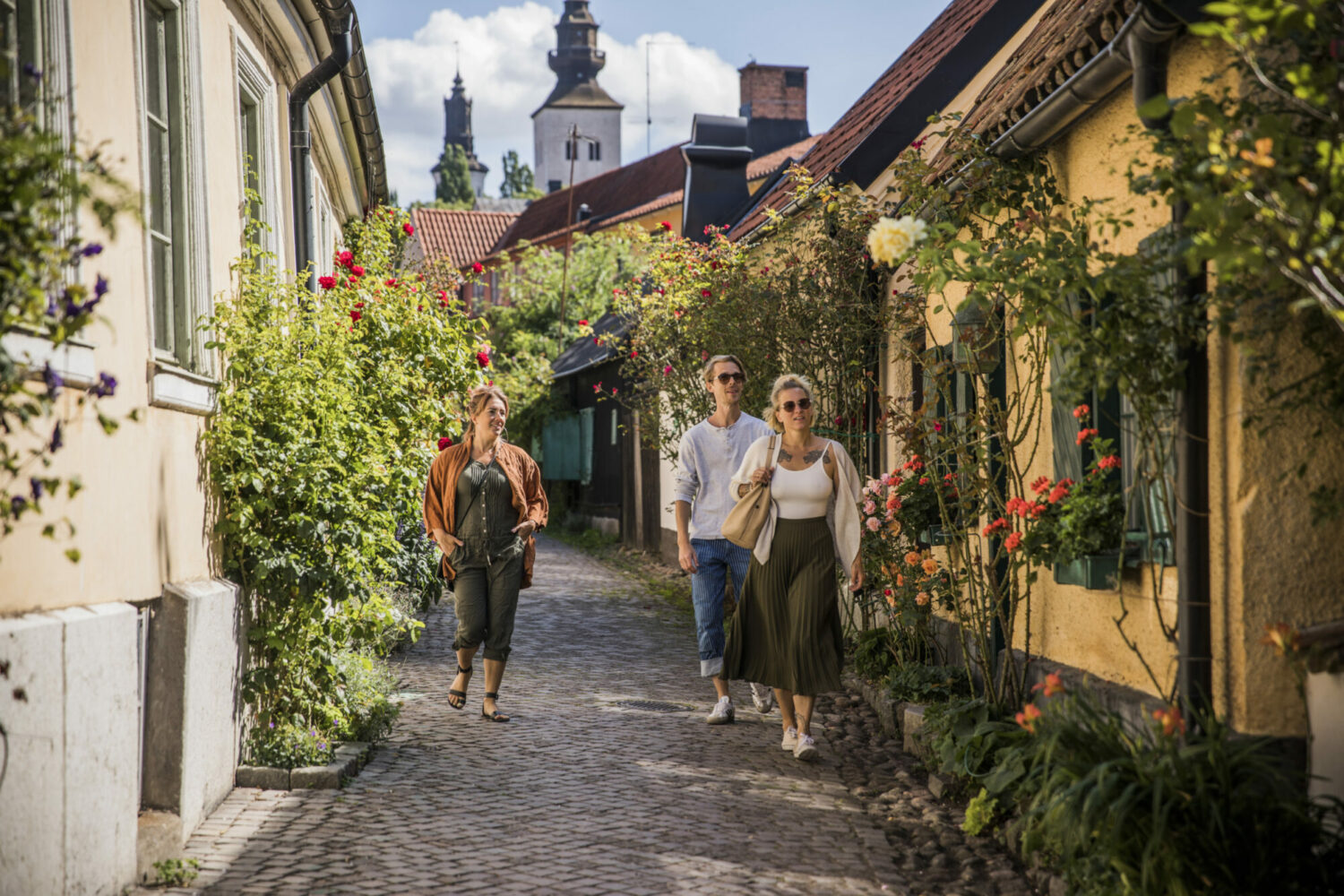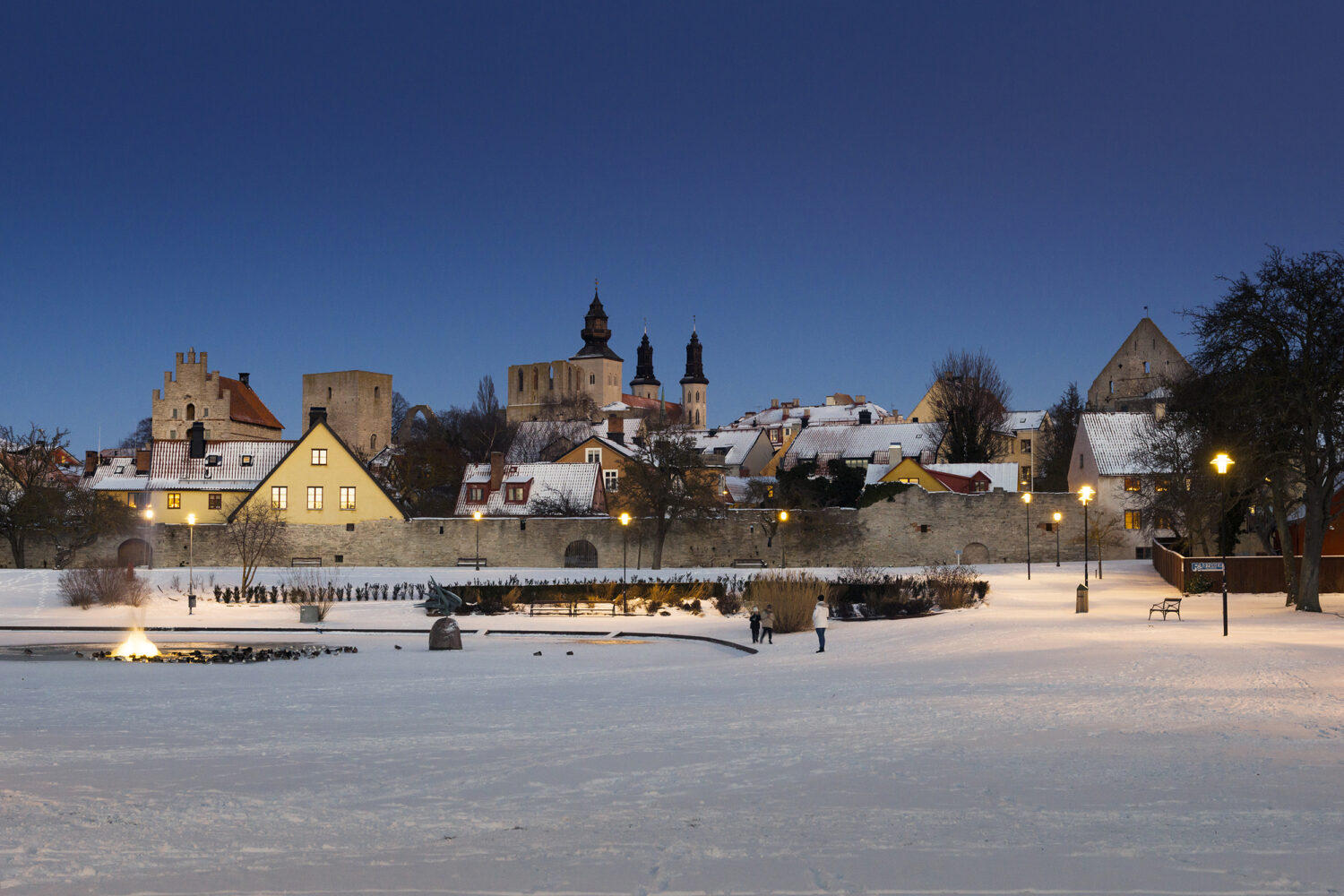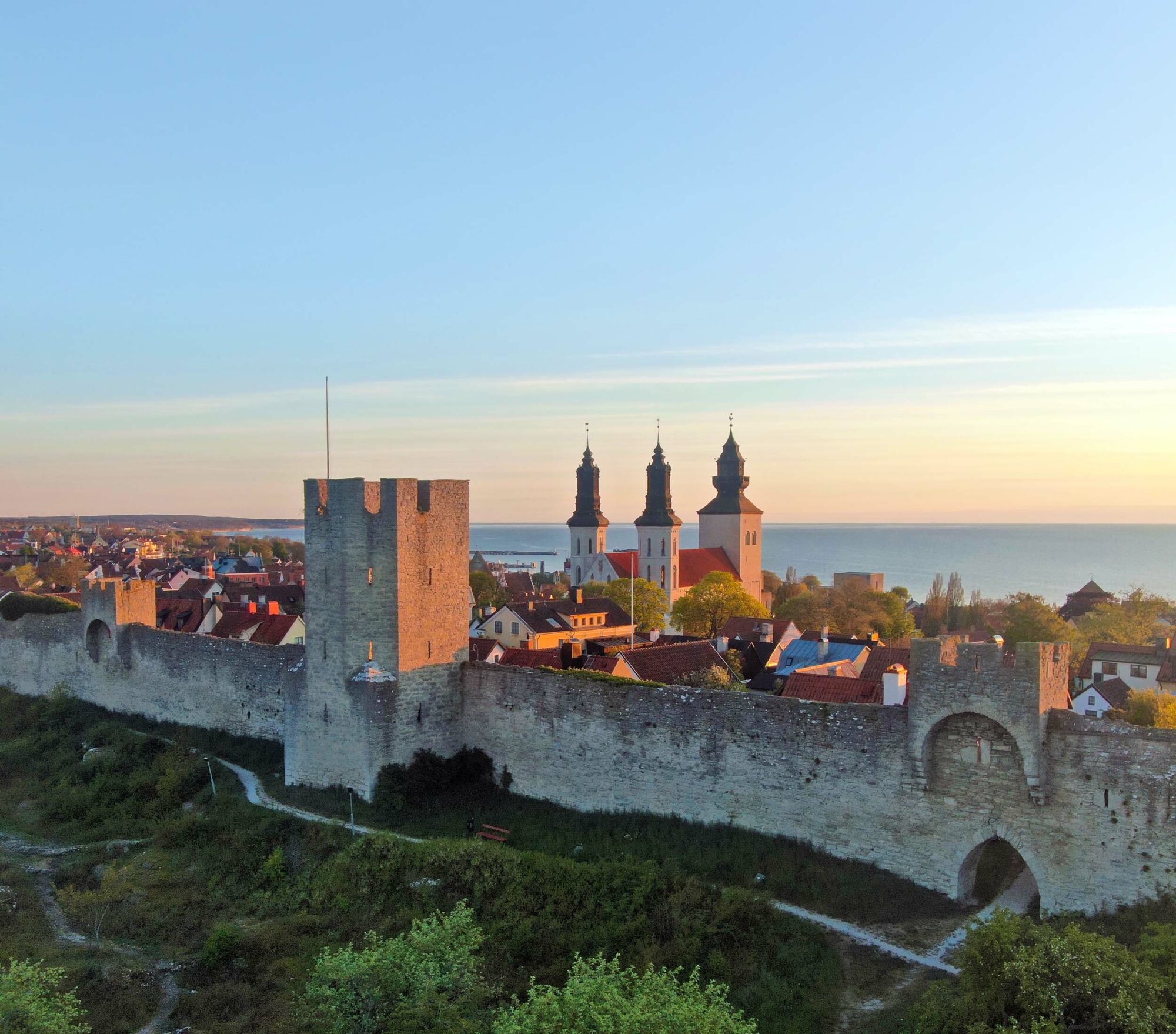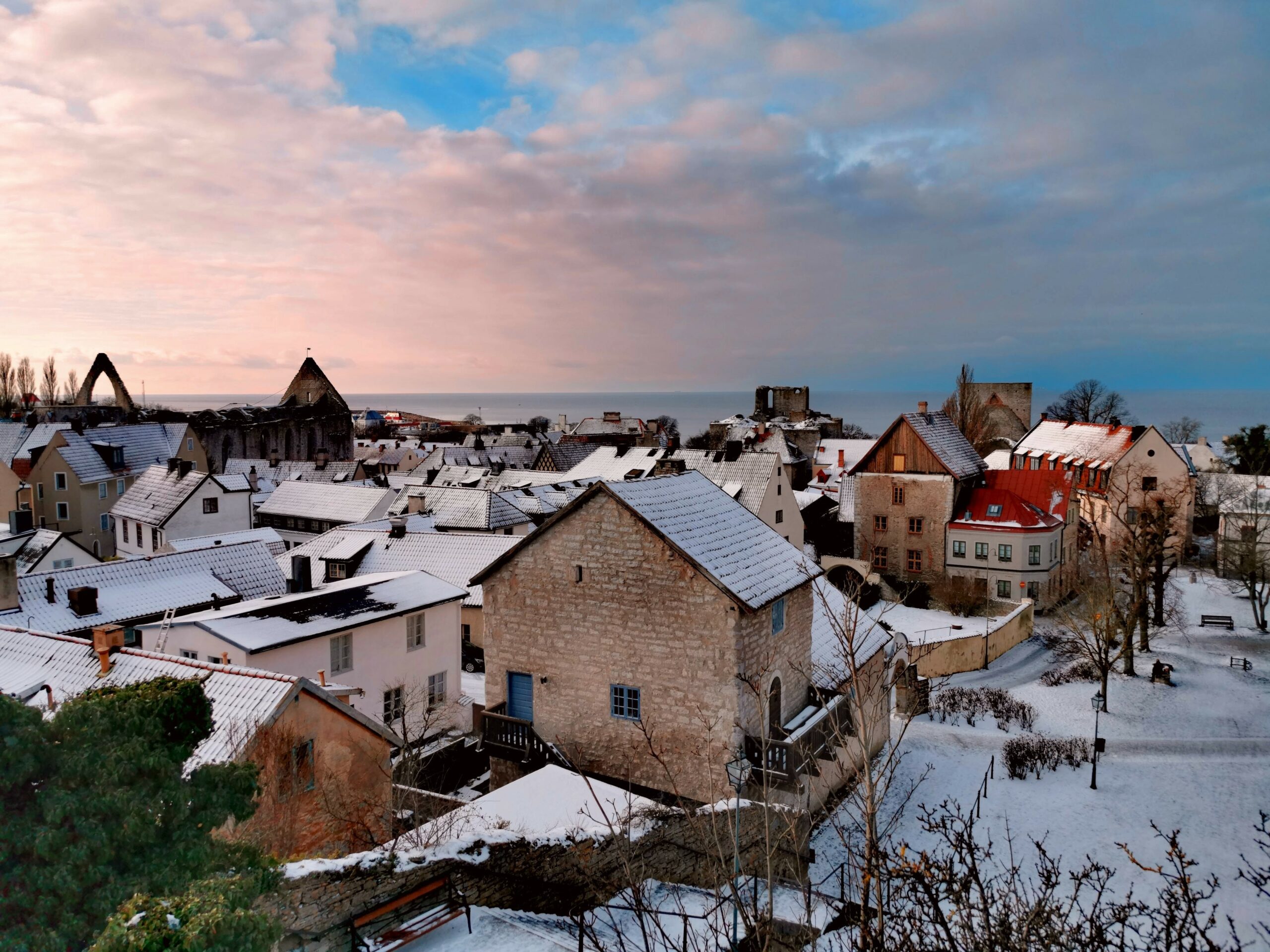- Besöka & uppleva

Explore Visby in 4 hours
In a hurry? It is actually possible to experience at least the main attractions in Visby in just a few hours. The city may have been a medieval metropolis, or Medieval Manhattan as it is sometimes called, but it’s still a relatively small city that is easy to grasp. This guide will take you to some of the most basic sights in Visby, but do not worry. The range of attractions is huge and you will discover countless things along the way.


Almedalen
Almedalen is and has long been a meeting place in Visby. Once this place was the city’s port. Today, the lush park is a nice relaxing place to spend some time in.

Strandgatan
Strandgatan dates to the Viking Age. It was also medieval Visby´s main street. Merchants’ warehouses stood side by side along the street with the Old Pharmacy being a well-preserved example.


Gotlands Museum and Fornsalen
At Gotland Museum you can see the unique picture stones, gold and silver treasures, authentic medieval interiors among a lot of other things. 8000 years of rich history from Stone age, Viking Age, the Middle Ages until present times. Exhibitions reflect the cultural history of Gotland.

Kruttornet-The Powder Tower
The Powder Tower is the oldest tower in the city wall and built in the 1100s. It provided protection for the harbour during the Middle Ages when Almedalen was a harbour. The tower was named Powder Tower in the 18th century when the Swedish state stored gunpowder in the tower.


Fiskargränd
Visby has plenty of narrow and cozy alleys, Fiskargränd, with its roses, is the most famous of them and one of the most photographed places in Visby.


The Botanical Garden
The Botanical Garden was founded in 1855 and has since been a popular oasis in Visby. Here you’ll find many unusual plants, for example, fig tree, mulberry tree and also a large selection of roses, some of the roses even bloom well into late autumn.
The garden is open all year round. No entrance fee.

Väktargången
Through the reconstracted rampart walk you can climb a tower of the wall and get a nice view.

St. Nicolai church ruin
In the year 1226 the Dominican friars also known as the black friars came to Visby and St Nicholas church. The Dominican monks stayed in Visby until 1525 when the church and convent was burnt down during a German attack against the city.


The medieval city wall
Visby town wall is about 3.5 km long and is the best preserved town wall in northern Europe. The wall is about 11m high, built in different stages, it was completed in 1288.


Klinten & Kyrkberget
If you walk up the steps next to the St Maria Cathedral, you will have a stunning view over Visby and the Baltic sea from “Kyrkberget”. Klinten, meaning the cliff, on which small cottages were built for the poorer population in the late 1700s is today a well preserved area under heritage protection.


Sankta Maria cathedral
Visby’s beautiful cathedral is both a place of worship and a cultural treasure. The construction of the cathedral began in the late 12th century, funded by the fees paid by German ships using the port of Visby. Since 1572 it has been the Diocesan church of Visby, and in 2003 it also became the cathedral abroad for the Church of Sweden.


Stora Torget & St. Karin church ruin
Stora torget is the main square where you find restaurants and bars. S:ta Karin is an impressive church ruin with high arches. The church and convent was founded in 1233 by the Franciscans. Nowadays.

Shopping
Visby has a large selection of shops, you find most of them at Adelsgatan, Hästgatan, S:t Hansgatan and Östercentrum.



Eat & Drink
Visby has more restaurants per head of population than anywhere else in Sweden. In other words if you love food and drink you´ve come to the right place! Flavours from all around the world blend with local ingredients in trendy eateries and cosy, atmospheric dining rooms. A popular dessert is saffron pancake with whipped cream and dewberry jam (salmbärssylt). Most restaurants are located at Donners Plats, Strandgatan, Hästgatan, Wallérs Plats and Stora Torget.





